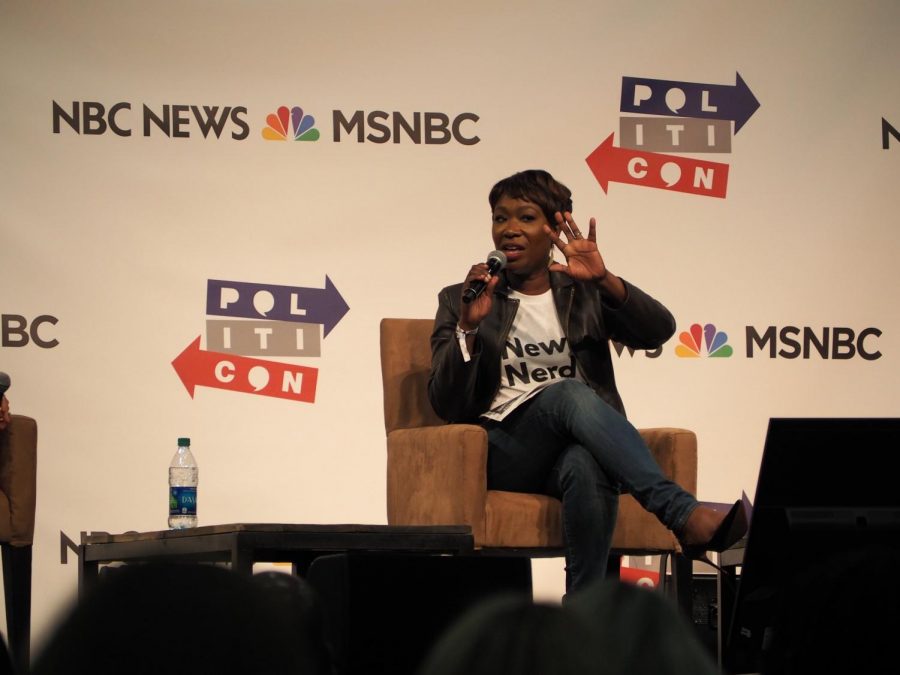Objectivity is the goal toward which all true journalists strive. It is for this reason that most major news publications ask their employees not to campaign for politicians; they want journalists to report on the news, not be the news. It has long been a tradition in American journalism for news organizations to not identify with a particular political party or ideology, in efforts to tell the news as fairly and accurately as possible.
The reason for this is so that journalists can report impartially, and to ensure they don’t make their own version of the news by inserting their own beliefs into what really happened. However, in the case of Special Counsel Robert Mueller’s investigation, the media created a narrative that simply wasn’t true. Media stories regarding President Trump colluding with Russia to affect the 2016 election ran wild with speculation. On Joy Reid’s morning program on MSNBC, Reid discussed with a panel what would happen if Trump locked himself in the White House and physically refused to leave his office in the event of receiving a subpoena. The New York Times posted a lengthy article discussing all the possibilities of how the Special Counsel’s investigation could end, including a hypothetical describing how the investigation could lead to the president’s impeachment.
These stories, among many others, contributed to the unsupported narrative that Trump colluded with Russia, a claim that Mueller “did not establish” in his two-year investigation. The media community fed off of each other, resulting in the generally shared belief that the President of the United States may have worked with Russia to rig a presidential election; a storyline that just isn’t true. Even after Attorney General Barr’s statement on the Mueller report’s findings, roughly half of Americans still suspect Trump colluded with Russia.
The media is intended to serve the people, and we need to expect more out of the media than this. It’s times like this that puts into perspective just how dependent on the media we all are, and just how fragile our systems of information can be. We, as citizens, rely on the news to tell us what is going on with our government, our nation’s leaders and the majority of the world around us. When the media pushes seductive storylines that are published on the basis of potential popularity rather than truth and genuine importance, our society becomes misinformed and our attention is veered from more important issues.
The overemphasis on the importance of the Mueller investigation has discredited the legitimacy of the Trump’s victory in the 2016 presidential election, another instance in which the media pushed a narrative that wasn’t the case. Coverage leading up to the 2016 election gave the impression that Hillary Clinton was a near guaranteed win; The New York Times gave Clinton an 80-90 percent chance of winning during the last month leading up to the election. The focus on the Mueller investigation from both the media and average citizens served to ease the shocking blow that was the 2016 presidential election result. This willingness to cling to some possibility that the election was illegitimate has resulted in newsrooms wasting countless hours on an investigation that should have warranted much less attention. Former presidents George W. Bush, Bill Clinton, Ronald Reagan and several others have also been subject to independent investigations, however none have garnered the coverage and sense of importance as Mueller’s.
To regard this case as the media just making a mistake is a huge understatement. This story has been a major part of the news stream for years, and certain news organizations taking Trump’s collusion with Russia as a fact instead of an accusation falls more along the lines of propaganda than journalism. It is no secret that journalism is a struggling field, and newspapers have seen declining circulation trends since the 1980s. Trump’s feud with the liberal media has offered a resurgence in popularity among newspapers and news broadcasts, which many organizations have responded to by producing much more Trump-related content, specifically pertaining to any possible scandals he may have. The world of journalism is competitive, and often stories like the Mueller investigation are taken to an extreme simply because it makes for a better story.
People in 2019 receive more information than ever before, and it’s not slowing down. Media organizations need to focus more on curating stories on a basis of importance and relevance rather than just pushing forward the most potentially scandalous stories. While national attention has been centered on Russian collusion for years, the Trump administration has executed with relatively little coverage other egregious actions, such as appointing an extremely under-qualified member to sit on the Federal Reserve board and continuing to neglect Puerto Rico in its time of desperation.
It is important to be reminded of how reliant we all are on the media to report the news accurately. In 2016, the presidential candidates who received the most coverage won their primaries while national issues gave way to competitive game-style coverage of the elections. We rely on the media to tell us what’s going on, and every slip like this can break down the trust between journalists and citizens that is so crucial to our society. The media must do a better job of not creating their own narrative, but rather reporting the news accurately and fairly. Conversely, we as citizens must do a better job deciphering the two.
Maxwell Zeff is a Collegian columnist and can be reached at [email protected].





















NITZAKHON • Apr 3, 2019 at 9:21 am
You make the mistake in thinking that the media – named “enemedia” by many on the Right (including myself) – are attempting to impartially inform. Rather, I will quote Glen Reynolds of instapudit.com “It helps if you think of them as Democrat propagandists with by-lines”.